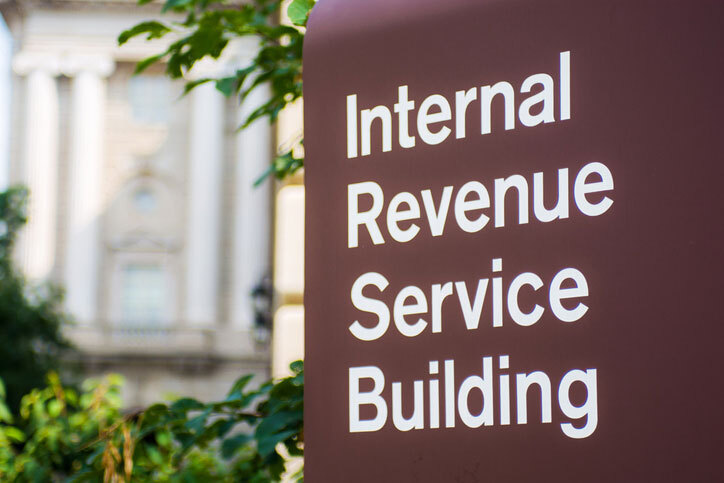What to Do After the July 15th Deadline
All year you were preparing, worried about the impending deadline of July 15th. A large number of Americans were still unable to file, and while many others were able to file, they had tax liability from prior years. The big question that everyone wants answered is: was that our last chance to apply for relief and get help with filing?
July is not the end of the battle for financial freedom, and it certainly does not mark the closing of the window of opportunity to get out of tax debt.
Tax Debt Relief After July 15th
It’s been brought to our attention that many Americans are under the impression that there is a deadline for debt relief. The Fresh Start Program, for instance, provides debt relief to taxpayers all year. The only certainty of not qualifying is not applying.
The IRS does not push this program to the forefront of debt relief options because it doesn’t benefit them in any way. The agency would rather get you to agree to a payment plan that you cannot afford. The penalties for missing a payment on these plans will only be further detrimental to your financial situation.
More About the Fresh Start Program
Fresh Start is just one type of relief program, that is comprised of two big solutions.
Installment Agreement: You can arrange an installment plan to help you pay off your debt within your means month to month. Interest will be accrued to your balance until the debt is fully paid, but you can halt collections from contacting you and avoid the penalties that come with negligence.
Offer in Compromise: Negotiate a settlement amount with the IRS that will clear your debt in full. The agreed-upon balance is to be paid over a five-month period. Once paid, the debt is considered satisfied.
Which Solution Will Work Best for Your Case?
The answer to this depends on what you qualify for. Solutions to tax debt differ from case to case.
Millions of dollars in tax debt is forgiven by the IRS every year, but with the economic impact of the unprecedented pandemic we can expect to see billions forgiven this year. The Fresh Start Initiative is easier to qualify for and more taxpayers are seeing reductions in debt than ever before; all to counter the distress caused by COVID-19.
Other Tax Relief Programs
CNC, or Currently Non-Collectible is a filing status that stops any collection activities. This status doesn’t remove liability, but if you are experiencing financial hardship then you can avoid levies, wage garnishments and more.
Penalty Abatement is something that you can request to evade penalties as well. Any level IRS agent is able to grant an abatement request, however local IRS offices can only grant an abatement up to $100. This request is free to you, the taxpayer. You can read more about Penalty Abatements here.
How to Know if You Qualify
July 15th does not mean your chance for tax debt relief has passed. The longer you wait, the more penalties and interest your case can accrue.
Let us get to know you and your case, and we will let you know what your options are at no cost to you. Should you choose our services, we will ensure that you achieve the best resolution possible for your case.
You can start by taking our free survey. This short questionnaire will pre-qualify you for tax debt relief. From there, a TaxRise representative will email you for a consultation, which is the first step in our process.
Any new or systemic Liens and/or Levies will also be suspended for the time being.
For taxpayers who are considered “seriously delinquent”, the IRS will suspend any new certifications for the remaining period. Any taxpayer who falls into this category in reminded and encouraged to enter into an Installment Agreement or apply for an Offer In Compromise.
The IRS will not forward any new delinquent accounts to private collection agencies at this time.
Taxpayers have until July 15, 2020 to verify to the IRS they are qualify for the Earned Income Tax Credit or to confirm their income. If the taxpayer is unable to verify their credentials or provide appropriate documents for this credit, they are encouraged to notify the IRS before the deadline. No cases will be denied this credit for failure to provide requested information until July 15.
Case workers will continue business as usual. However, most case work will be conducted remotely (video/over the phone conferences). Any requests for documentation sent by the Office of Appeals should be responded to in a timely manner to ensure a smooth process.
The IRS will continue to take the appropriate measures to stay compliant and protect the applicable statutes of limitations. In situations where certain statutes may be compromised, taxpayers are encouraged to extend such statutes. Otherwise, Notices of Deficiency will be issued by the IRS and similar actions will be pursued to protect the interests of the government in preserving such statutes. Where a statutory period is not set to expire during 2020, the IRS is unlikely to pursue the foregoing actions until at least July 15, 2020.
Practitioners are reminded that PPS wait times may be significantly longer, depending on staffing levels and allocations going forward. The IRS will continue to monitor this as situations develop.
“The IRS will continue to review and, where appropriate, modify or expand the People First Initiative as we continue reviewing our programs and receive feedback from others,” Rettig said. “We are committed to helping people get through this period, and our employees will remain focused on these and other helpful efforts in the days and weeks ahead. I ask for your personal support, your understanding – and your patience – as we navigate our way forward together. Stay safe and take care of your families, friends and others.”
Learn how easy it is to qualify for tax savings.




